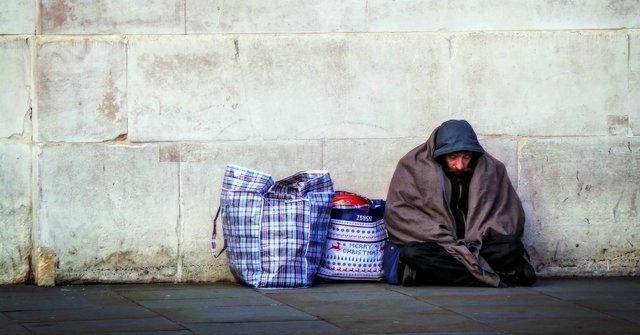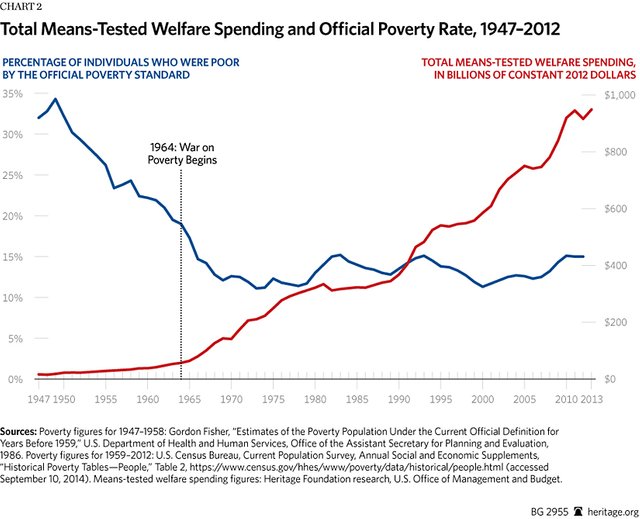The State of Homelessness

A couple of years ago there was this show called "Nybyggarna" (roughly translated "The Settlers") on a Swedish commercial television channel. In short it's a show where you follow a bunch of individuals who, after years of abuse and homelessness, get the chance to work with a famous carpenter and his team to build a home that can lay the foundation for a new life. They will now not only have to keep up with the construction process - but must also fight against the drug addiction, and besides they are all quite unaccustomed to routines and teamwork. Even though I was quite moved by their stories and impressed by their commitment to change and stand up for themselves, I was very judgmental towards the whole concept itself. If there is a problem, it is the State's responsibility to solve it. And if a private solution is presented it should be dismissed as immoral, even if it works. I used to reason like this for many years, completely without reflecting on it. Much of the same critique was directed towards the show in media (especially state owned media). You see, in Sweden we're so conditioned into statism that we equate state with moral, virtuous, honest and good, while we equate private with the exact opposite.
But does the government really care about the poor and homeless? Over $20 trillion was spent was spent in USA on the war on poverty since 1964, but only about 30% of it actually reached the poor; the rest eaten up by the the costly and ineffective state apparatus . This compared to the ~$300-350b given to charity annually, of which ~85% reaches the poor. Despite the huge state apparatus and welfare state system of Sweden, we have around 35000 homeless people that have fallen through the cracks, of which 5000 are acutely homeless (something that surely will increase with the latest influx of immigrants). The amount of billions spent on combating homelessness is increasing in pace with an ever increasing homelessness. The bureaucracy is slow and heavy, and the rules and regulations make up a veritable jungle. Voluntary organizations are making an enormous effort to improve the situation for the homeless and drug addicts. In politics however, in general, the concept of solidarity is quite different. Interest groups speak of solidarity in order to gain advantages for themselves. Swedish, Japanese and US farmers invoke 'solidarity' in order to maintain agricultural subsidies and trade barriers against the third world, and gain competitive advantages. The labor movement invokes 'solidarity' to maintain fully or partially closed borders and minimum wage laws / forced collective bargaining laws, etc., to protect themselves against competition from migrant labor. As I see it, this use of the word 'solidarity' is rather about group interest and to gain or retain privileges.

But a choice that wasn't made voluntarily, without any means of coercion, can not be morally justified. If I'm forced to pay tax that goes to developmental aid, it is not me who is solidary, but rather mandatory solidarity decided and enforced by the Swedish state. I have not decided this, and therefore I can't be said to have acted in solidarity. Nor can the Swedish government be said to act in solidarity, as it isn't solidary to confiscate the money from someone and distribute it to someone else. In fact I believe that it is exactly this kind of system that foster moral corruption
The initiatives from the NGO's for homeless people can be viewed from two perspectives. On the one hand, as a policy failure, in which public safety nets let through the people who probably most need them. On the other hand, it can be viewed as the success of the civil society - the civil society actually takes care of those who need help. NGOs have more and more come to replace the public sector. The organizations often offer something different and something more - a different kind of social network, dignity and humanity. Wouldn't it benefit the most vulnerable in our society if the NGOs higher degree of humanitarianism were taken more seriously, and even as successors to the public sector?
As the Swedish labor market is state regulated ad absurdum, which means that it's nearly impossible for low-productivity / inexperienced workers to get a job, it seems to me that it would be in the interest of interest groups for homeless people would bring this to the fore, but I have sadly never seen a representative for them who seeks to liberalize the labor market. Classical liberalism and libertarianism is believed to be everything possible - preferably something sinister and suspicious. But I wonder why not more political commentators see the problems with a growing state. Not even when government regulations and laws place barriers for those who need the most help - the homeless, drug addicts - our idea of more government involvement being the solution to all problems is questioned.

The story of the NGOs is a story about a civil society that takes responsibility for the people that aren't reached by the welfare state. It is a story that contains much tragedy, but at the same time, there are reasons to feel great joy and hope for these private initiatives. This is fuel for an interesting discussion of how to best support these much needed organizations. To give them increased public funding is hardly the way to go. What would instead lower taxes mean for people's opportunities to support NGOs? What about deductibility of private individuals contribution to fund raising accounts? What institutional changes may be made to further enhance the already growing social responsibilities of companies? How to best restore the responsibilities of the civil society? How can we best foster real solidarity, virtue, self-ownership and self-responsibility?
The bottom line: there is nothing that the state can do that private enterprise and a community of individuals can't do better.
(I recommend listening to this interview with William Easterly, where he argues that a decentralized charity system is much more effective in finding and solving the problems that a society is facing: www.econtalk.org/archives/2008/02/easterly_on_gro.html)
Sources:
http://www.heritage.org/research/reports/2014/09/the-war-on-poverty-after-50-years
https://www.youtube.com/watch?v=XooUY4p4RaY
http://www.economicsjunkie.com/is-government-needed-to-fight-poverty/
"Over $20 trillion was spent was spent in USA on the war on poverty since 1964, but only about 30% of it actually reached the poor; the rest eaten up by the the costly and ineffective state apparatus . This compared to the ~$300-350b given to charity annually, of which ~85% reaches the poor."
WOW, seriously?! Is charity that much more effective than government? Do you have some sources for these stats? I'm curious. :) Very interesting post btw!
Thank you for reading!
http://www.economicsjunkie.com/is-government-needed-to-fight-poverty/
"OK, so we know that private individuals and corporations were willing to give $307.65 billion to charitable organizations on a completely voluntary basis. How much of this money actually ends up in the hands of the needy? According to reputable charitable auditing and rating websites, such as Razoo this number seems to be around 80-85% on average."
Thank you for replying. I looked through the Statistics and: wow, wow, wow! I already thought that government welfare programs would be so much less efficient than the private sector, but this confirms it. Thank you for this enlightening post! :D I hope you will write many more such posts. Anyways, I am following you now.
Upvoted you